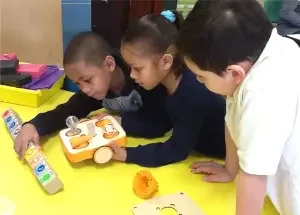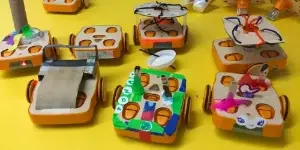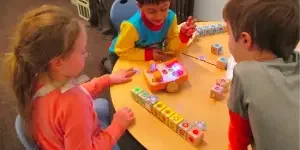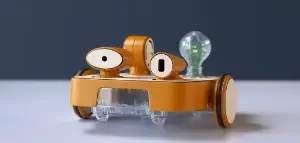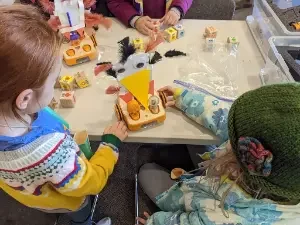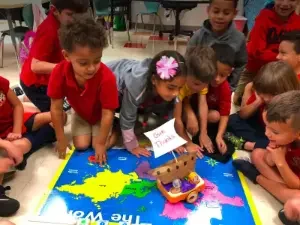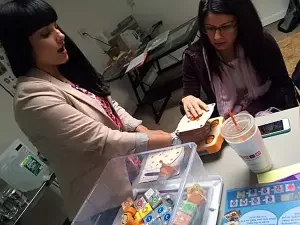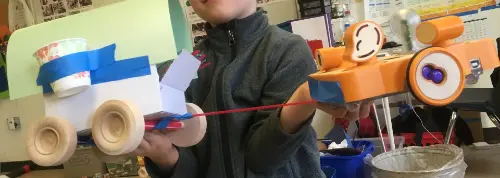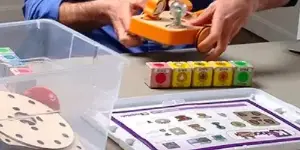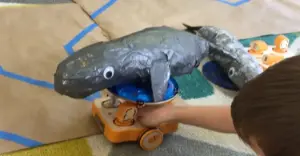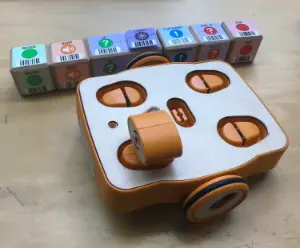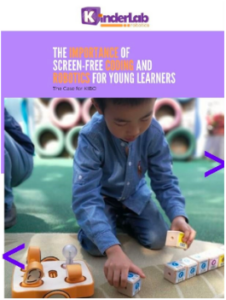Forbes: Why Kids Learn Better Playing with Robots
In this article, Why Kids Learn Better Playing with Robots, Jenn Choi describes KIBO and how it motivates children to learn. The article reads in part:
I love KIBO. It is one of those toys that ranks up there alongside brainy toy greats such as the Etch-A-Sketch, Froebel Gifts, and LEGO. These are examples of very intuitive toys. You just pick up and play and when you’re done, you have undoubtedly gained something. KIBO is a perfect demonstration of how kids are learning through play all while needing little to no instructions.
With a toy like KIBO, kids are able to take a robot, scan bar codes on a sequence of connectable wooden blocks, each of which have a designated action. This creates a string of orders telling the robot what to do. Actions like “Begin – Shake – Light Up – Turn Right – End” are terrific for young learners but the command sequences can also become more complex. Kids can even use “If-Then” clauses. KIBO is kind of like constructing a sequence of actions, similar to the way kids do pretend play and create stories.
I asked Dr. Marina Umaschi Bers, the director of the DevTech research group at Tufts and chief scientist at KinderLab Robotics about any prerequisite knowledge needed to play with KIBO. It was a relief to hear that there was a lot of success across the board among children despite the varied backgrounds in family income and even neurological differences such as children with executive functioning impairments. In my experience as a tester of hundreds of toys, that trait is a genuine marker of a well-designed toy because there is something in it for everyone. Additionally, as a fan of Friedrich Froebel, the inventor of the original kindergarten that began in the 1800s, it was very obvious that KIBO really had those special qualities of toys that intrinsically support creativity and inquiry. “Our company name and our product, KIBO, are certainly influenced by the works of Friedrich Froebel,” said Umaschi Bers. “Exploring programming through play and developmentally-appropriate learning manipulatives are core to the philosophy behind KIBO.”
Read the full article here.

